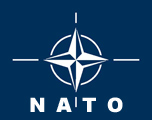NATO gropes for unity over Russia, Georgia, Ukraine
 Brussels - NATO foreign ministers were groping for unity on Tuesday as they debated whether the alliance should re-open high- level talks with Russia and how closely it should cooperate with membership hopefuls Georgia and Ukraine.
Brussels - NATO foreign ministers were groping for unity on Tuesday as they debated whether the alliance should re-open high- level talks with Russia and how closely it should cooperate with membership hopefuls Georgia and Ukraine.
"The first point is to avoid in any case disagreements and divisions among our members, because otherwise we'd give a very bad message to the outside world," Italian Foreign Minister Franco Frattini told journalists as he arrived at the Brussels meeting.
After Russia's invasion of Georgia in August, the alliance's foreign ministers decided to put high-level meetings of the NATO- Russia Council (NRC), which governs relations with its Cold War enemy, on hold in protest at the war.
With Russia insisting on treating the breakaway Georgian regions of Abkhazia and South Ossetia as independent states and military clients, NATO members such as the United States say that the alliance should be careful of doing anything which could be interpreted as softening its condemnation of Moscow's actions.
"We should look at (Russia) fulfilling the (ceasefire) commitments ... I think you'd want to be very careful, for instance, about doing things that look military-to-military, because the Russian military is still sitting in the secessionist states," US Secretary of State Condoleezza Rice said before the meeting.
But a number of Western European states which have traditionally pushed for closer relations with Russia argue that NATO should re- launch the NRC on ambassadorial level, in a bid to defuse tensions.
"We must look for possibilities to return to dialogue with Russia, because it is especially in the difficult phases of our common relationship that we need the chance to talk, which the NRC offers," German Foreign Minister Frank-Walter Steinmeier said.
The ministers are also far from agreement on how they should deal with membership hopefuls Georgia and Ukraine, whom NATO leaders at a summit in Bucharest in April promised entry to the alliance at an unspecified future date.
Ahead of Tuesday's meeting, debate focused on the question of whether the two countries should be awarded a Membership Action Plan (MAP), which is a technical instrument aimed at boosting reforms, but which politicians widely interpret as the first step to membership.
NATO diplomats said that the alliance had found it impossible to agree on that question, and that ministers were therefore more likely to call for more work on NATO-supervised reform in the two countries.
"I hope that we will agree that the alliance sticks to the Bucharest conclusions. I see no reason to go beyond those," Steinmeier said.
Georgia and Ukraine "want practical help, they know that the immediate issue is actually not a decision today on membership; the issue today is a decision on how we help those countries upgrade and develop their own armed forces," British Foreign Secretary David Miliband said. (dpa)